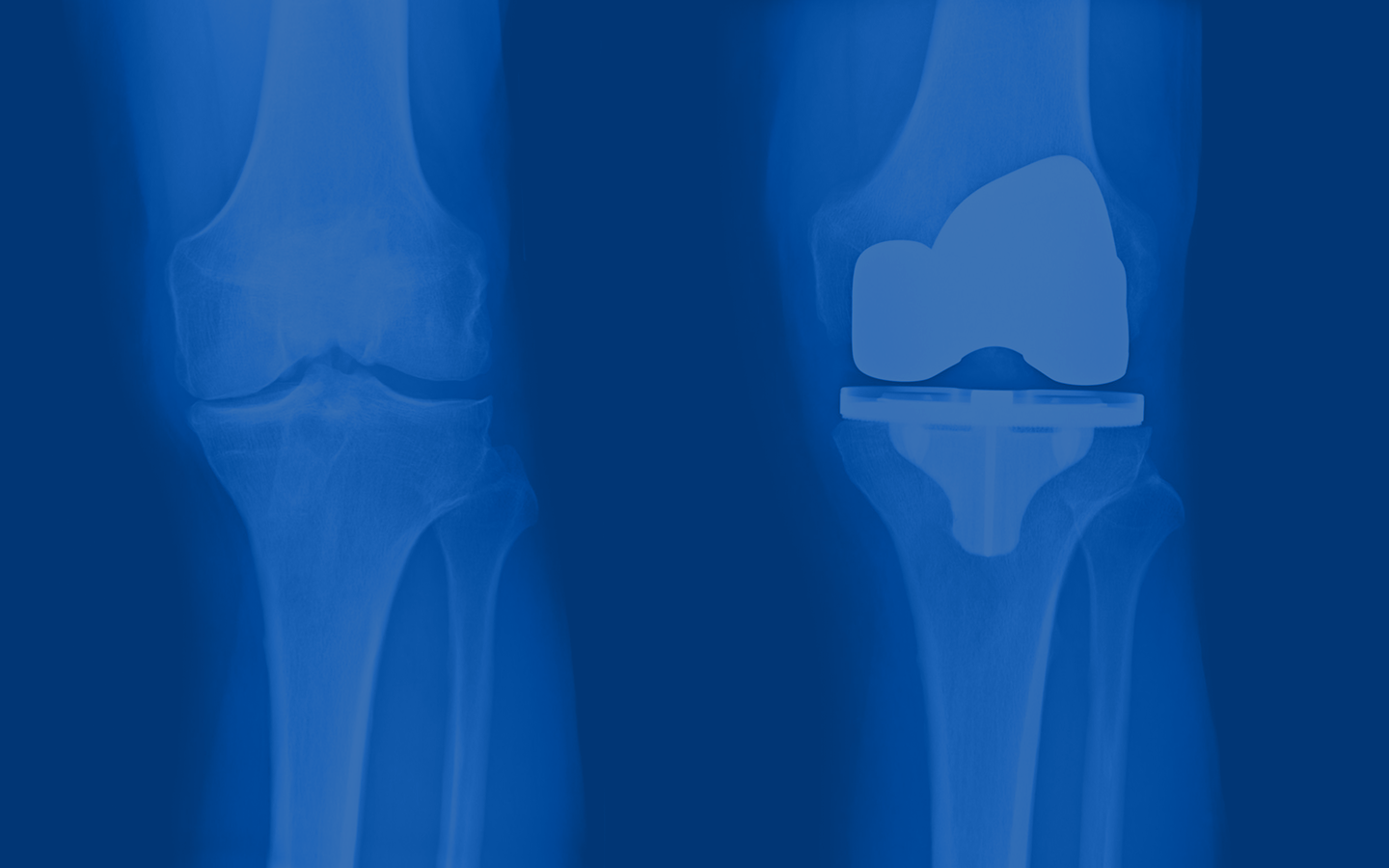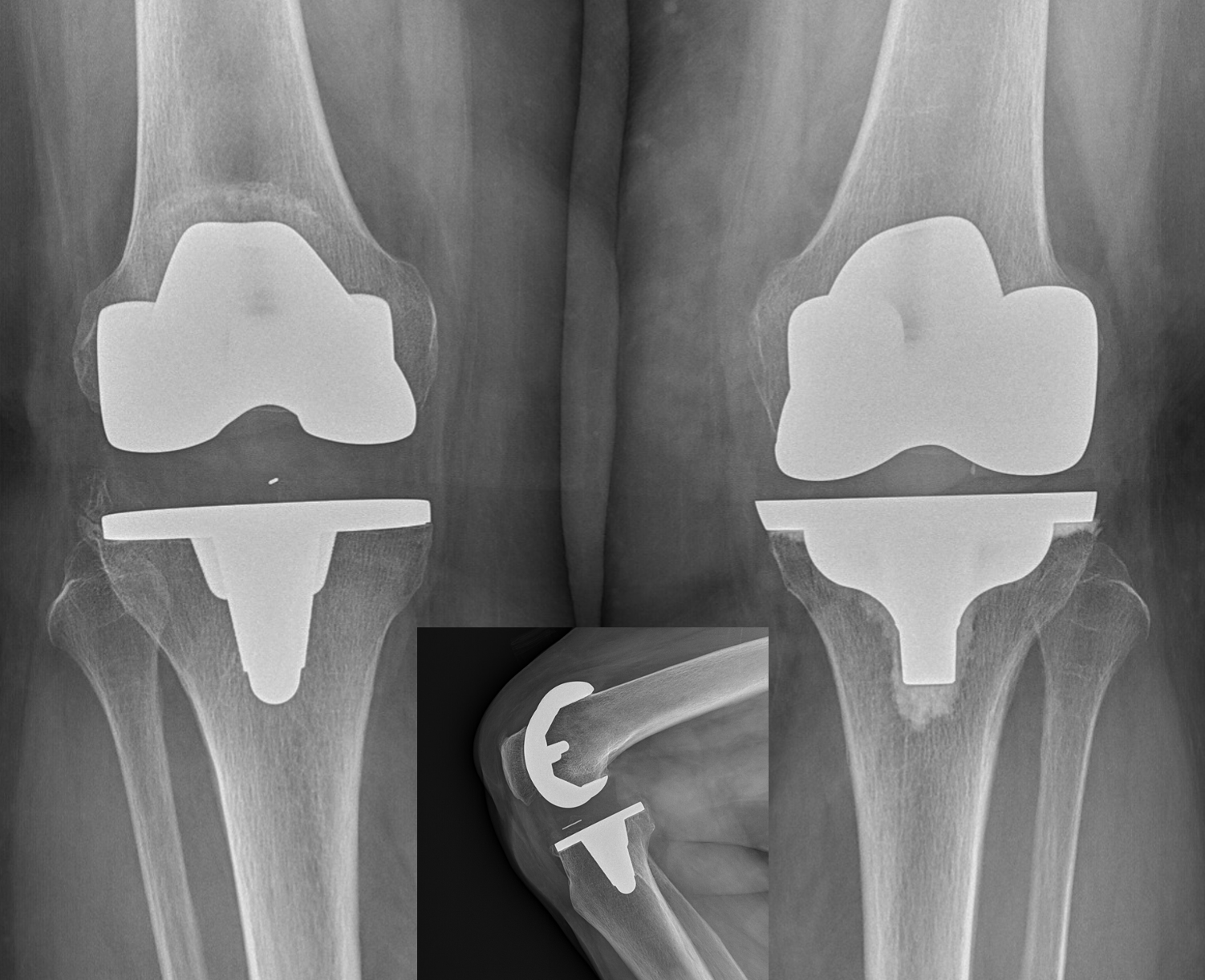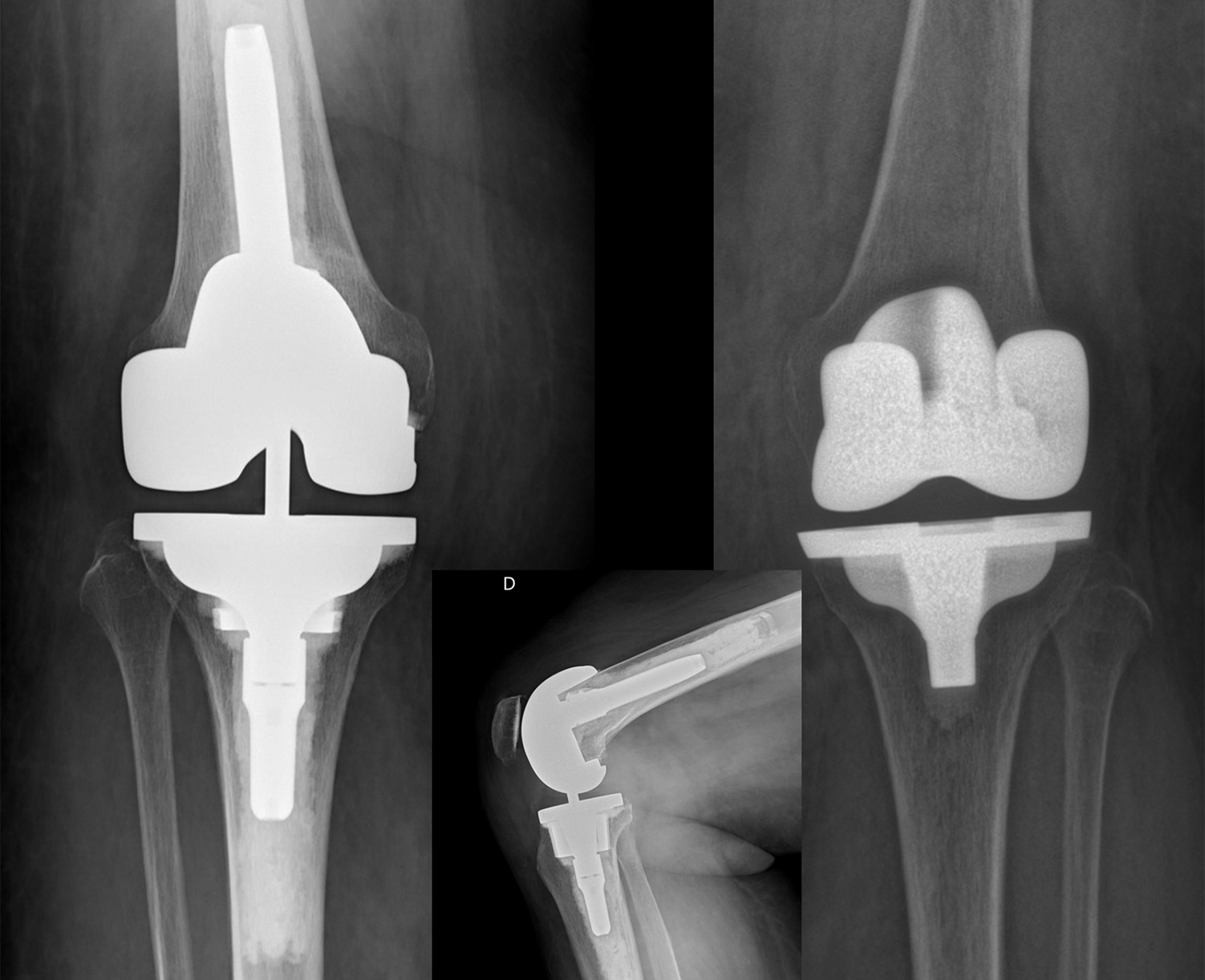
TREATMENT
Revision Total Knee Replacement
DEFINITION
It is a surgery that aims to replace a failing knee replacement. The revision is generally bipolar, i.e. both implants (femoral and tibial) are replaced.
It is a long and complex intervention, sometimes requiring bone graft, and with significant risks of complications (fracture, infection, phlebitis, etc.). This justifies:
- That the revision surgery be performed in a subspecialized/expert center in arthroplasty
- Regular monitoring of patients with joint replacements to diagnose and treat complications early, favouring optimal results.
Additional investigations are essential to define the cause of the failure of the replacement and to quantify any bone loss. This includes recent X-rays and blood tests for inflammatory markers (ESR and CRP). A modern MRI, with metal artifact reduction system (MARS), can sometimes be useful. A joint aspiration is also often necessary to exclude a possible infection
INDICATION
The reasons for failure of your knee replacement include :
- Significant residual pain and/or instability
- The loosening of an implant
- A peri-prosthetic infection
- A fracture of the supporting bone
- Wear of the prosthesis
- Etc ...
RETURN TO WORK AND SPORT
The time to return to your professional and leisure activities varies greatly from patient to patient depending on the level of complexity of the surgery performed.
The resumption of leisure activities such as swimming or cycling is generally authorized quickly within 3 months. Return to impact sports, pivots and/or sports at risk of falling will be deferred beyond 6 months and should be first authorized by your surgeon.
Loosening of total knee replacement implants with significant bone loss (left image) justifying bipolar revision with bone grafting (right image).

Before and after your procedure
Choice of Anesthesia and Postoperative Pain Control

Technology
Computer-Assisted Total Joint Replacement



